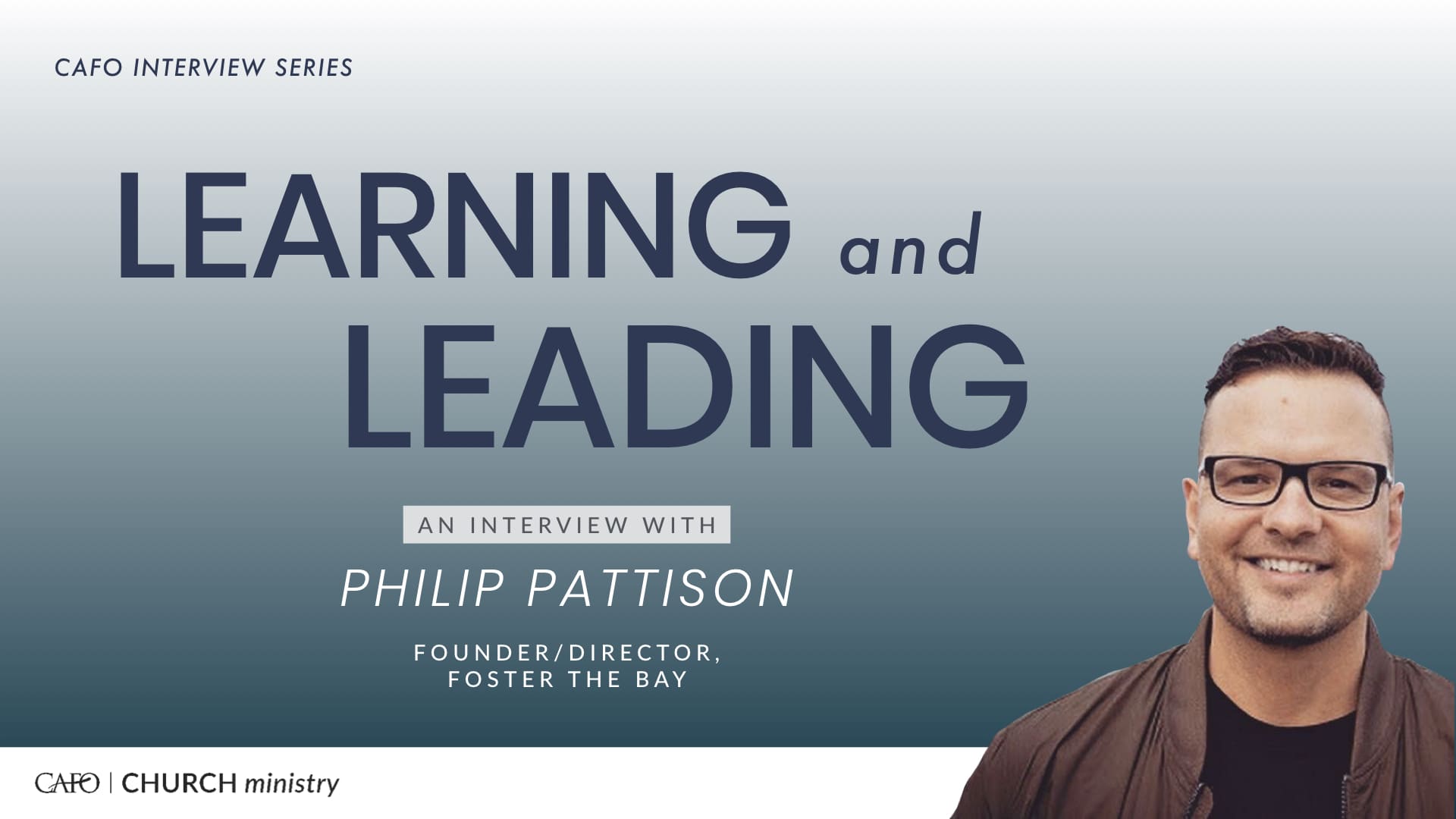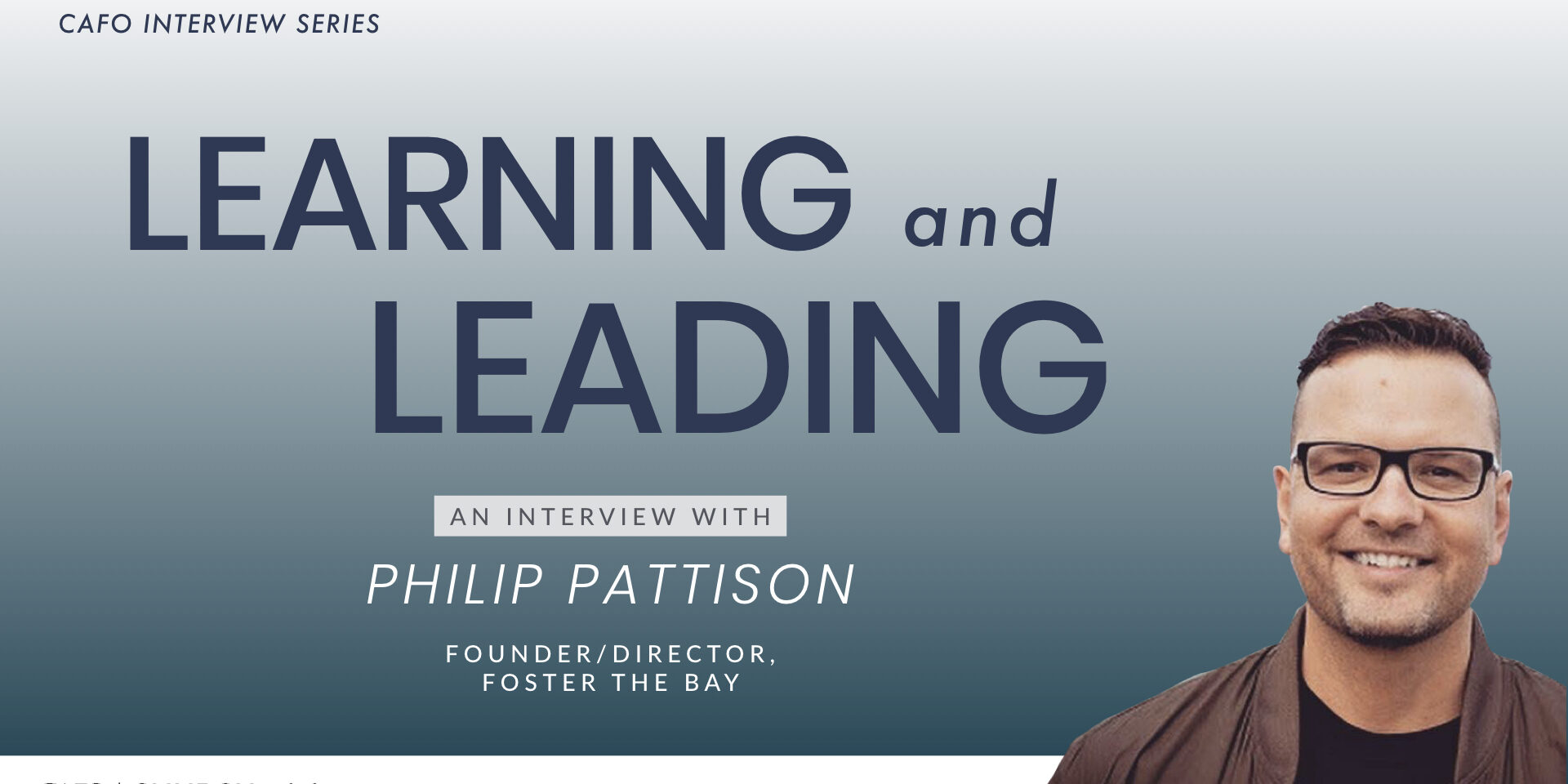I recently had the opportunity to ask my friend Philip Pattison a few questions about ministry and leadership. Philip is the Founder and Executive Director of Foster the Bay, a coalition of churches committed to providing a loving home for every child in foster care in the San Fransisco Bay area, as well as wrapping around supporting those families who are. Philip and his wife are also foster and adoptive parents.

Philip serves in the bay area as well as coaches leaders around the country who are launching and leading bridge organizations with a similar vision and mission. He is a deep well of wisdom rooted in a love for Christ and extensive experience serving and shepherding people in a local church context.
I particularly love how much focus they put on collaboration among churches as well as building out extensive support systems for families within their community who are fostering.
Here’s what Philip had to say…
1) What are you most excited about in your ministry right now? How did this particular thing come about?
When we launched this movement three years ago, we decided to call it Foster the Bay. We didn’t simply want to see some neat things happen in our home church, or even simply in our home city of San Jose. Our vision was to see churches across all 10 counties of the San Francisco Bay Area come together to address the crisis in the foster care system. After three years of hard work and a whole lot of prayer, we’re beginning to see glimpses of this vision becoming a reality. More than 60 churches have now allied together behind a dream of one day seeing a waiting list of families rather than a waiting list of children in need of a home. What excites me most right now is seeing churches working together on something that is near to the heart of God. As we continue to move this vision forward, the credit isn’t going to go to one great church or one charismatic leader. The watching world is going to see Jesus working through His Church across the Bay Area.
2) If there were “pillars” in your ministry – things you try to focus on the most – what would those be, and why?
There are a few fundamental mindsets that shape our efforts:
Laser Focus. One of our favorite mantras is “we choose lasers over flashlights.” By this we mean that we choose to focus our intensity on one single point in order to have a greater impact. At Foster the Bay we equip churches to raise up foster families and support friends. That’s it. We don’t host Parent’s Night Out. We don’t provide additional TBRI trainings. We don’t receive and distribute donated items to foster families. It’s not those things aren’t important, it’s just that there are other organizations that are already doing that really well in our area. We have been militant about staying in the one lane where we feel like we can add the greatest value, and as a result, I believe that Foster the Bay has been able to go further faster. It’s true that when you choose to do less, you can often accomplish more.
Quality Matters. We honor those we serve by taking the details seriously. Whether it’s pastors, potential foster families and support friends, government leaders or financial partners, we want every person that we serve to be confident that if they choose to take this journey with us, we’ve thought through each step, we care about the details, and that this work is important enough that God’s people should do it with excellence.
Empower the Church. We know that the local church is the hope of the world. Our mission to provide a loving home for every child in foster care will be accomplished by equipping the local church to get engaged. You’ll never see a billboard for Foster the Bay driving up 101 in San Francisco. Our focus is on empowering the local church.
3) What would you say to someone wanting to get their church more involved in foster care and adoption? How would you encourage them?
I would encourage someone wanting to get their church involved in foster care and adoption to consider a few key things:
1 – Prayer. Commit to seeking God daily and diligently for a season about what, when and how God might be leading your church to do.
2 – Research. Find out what is already happening in your area. Are there other churches, organizations or individuals in your church that are already engaging in meaningful work in these areas? If so, honor the work that is already being done and consider whether you need to start something new to compliment the existing efforts or if you can simply join them.
3 – Patience and Understanding. A common story that we hear is this: An individual feels a deep passion to start a ministry in their local church, they bring it to their leadership, and the Pastor say “no” or “not now”. The individual then walks away disappointed and disenchanted with their Pastors…“my Pastor doesn’t care about children in need!” I don’t know your Pastor, but I can tell you with confidence, this is not true. A social worker asked me recently, “what’s the primary reason a Pastor may so no to joining the work of Foster the Bay?” My answer was “Because there are a thousand other really good things to do. Foster care is only one expression of compassion that God calls His people into.” Your church may have another compassion focus, and that’s OK. Strive for patience and understanding with your church leadership. They’re doing the best they can. If your church decides not to get involved, this doesn’t mean that you can’t make a difference or be a catalyst for others.
4) What’s one thing in leadership that, if you could go back and tell yourself 10-15 years ago, you would? Why?
Make others great.
According to the Enneagram assessment (and my wife), I’m an “Achiever”. This can be a blessing when it comes to getting things done. But there is a backside to every blessing. The backside for an Achiever is that it’s important that everyone knows and appreciates what we have achieved. I need the credit. A big part of my spiritual and leadership growth is learning to let that go. My level of peace and joy is not dictated in what I produce and who knows it, but rather in the reality that I am a beloved child of God. When I remember this, I’m free to make others great rather than vainly pursuing my own greatness. This means that I get to elevate other leaders on our team. This means that we get to elevate the contribution of the local church rather than our non-profit organization. This means that we get to celebrate and collaborate with other like-minded groups, rather than compete with them. The best and most effective leaders I know are those who lead with others in mind.
I’m grateful for seasoned leaders like Philip who invest deeply into others and serve the broader CAFO church network well. To connect with Philip, or another coach on the CAFO Church Coaching Team, you can contact us here.

